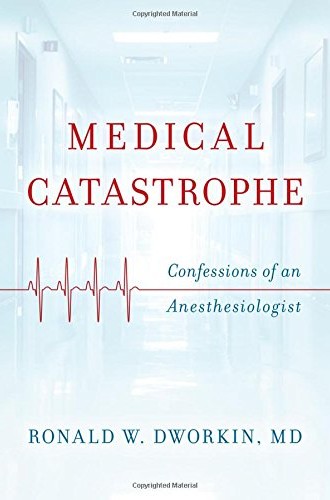Realities in the doctor's office
Anesthesiologist Ronald W. Dworkin reminds me that going to the doctor isn’t the same as sharing a cocktail with a friend.
I had high hopes for the new resident I’d be seeing for my annual physical exam. His last name was the name of one of my favorite mixed drinks, so I had a premonition that the appointment would go swimmingly well. It might even be fun, I thought, like enjoying some solitude on the beach while sipping a cool beverage and marveling at the paper umbrella on the end of the toothpick.
In the exam room, however, Dr. Mixed Drink seemed nervous. He answered more than one of my questions with a vague factual statement about something loosely related to my query. At one point, I inadvertently rolled my eyes. Later when he delayed putting in the order for bloodwork, I wondered if he was being deliberately slow because he’d noticed my annoyance with him. Then again, my appointment was late in the day, so perhaps he was just exhausted. I left the office feeling a mixture of frustration and empathy for Dr. Mixed Drink.
That evening, I picked up Ronald W. Dworkin’s new book, Medical Catastrophe. Despite the dramatic title, most of the book’s content reflects something closer to the subtitle, Confessions of an Anesthesiologist. Indeed, it reads like a confession in the multivalent sense that Augustine used the term: it’s the story of one doctor’s search for vocational identity set alongside a critique (including plenty of self-critique) of the history, structures, and entanglements of modern medicine. Stories of “medical catastrophes,” most of them near-misses due to a combination of human error and complex relationships in the operating room, frame the narrative. But underneath those dramatic stories is a deeper, well-articulated vocational question: what does it mean to balance the traditional roles of the doctor—gentleman, technician, scientist, benefactor—with the leadership required of doctors in today’s world? These questions unfold with an escalating sense of urgency as the book proceeds. The author demonstrates how many medical catastrophes can be blamed on politics—not large-scale national politics so much as ground-level power struggles in the relationships between the many people who are involved in patient care.






